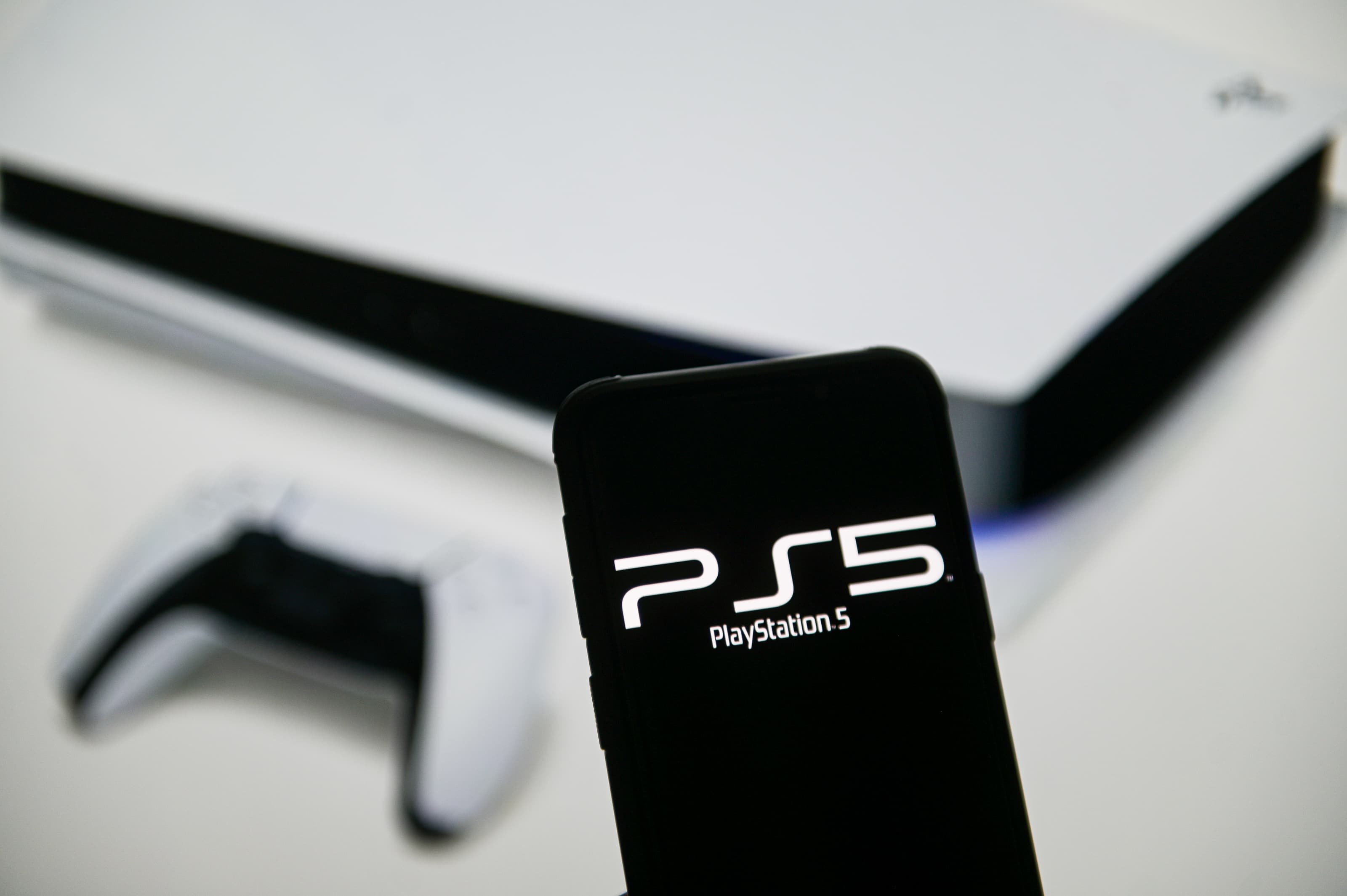
In this photo illustration a PlayStation 5 logo seen displayed on a smartphone.
Mateusz Slodkowski | SOPA Images | LightRocket via Getty Images
GUANGZHOU, China — Sony officially launched its PlayStation 5 console in China on Thursday.
The disc version of the PS5 will retail at 3,899 yuan ($602) while the digital only model is priced at 3,099 yuan.
Sony’s console will go on sale on May 15 in China with pre-orders beginning on April 29.
Official releases of game consoles in China has only been possible since 2014, after a 14-year ban on those products was lifted. The ban has led to PC, and now mobile, being the dominant forms of gaming amongst Chinese consumers.
Strict censorship laws and long approval processes also mean that console-makers have a tougher task of getting their products officially released in China. While the PS5 was launched globally in November 2020, it is only hitting the Chinese market months later.
That has led to a vibrant so-called “grey market” — where sellers often import consoles from Hong Kong and Japan and sell them via Chinese e-commerce websites, often at a huge mark-up.
“Demand for PS5 has been high in China since it launched outside the country in November 2020,” Daniel Ahmed, senior analyst at Niko Partners, said.
“Console gamers in China that could not wait had to pay almost double the RRP (recommended retail price) if they wanted to import a console from overseas,” Ahmed said, adding this was due to shortages of the product and high demand driving prices higher.
‘Genshin Impact’ among games released
Games also need to go through Chinese censors. That means some games may not get a released in China if they upset the sensitivities of Beijing.
Sony said the PS5 would launch with three games — “Sackboy,” “Ratchet and Clank” and “Genshin Impact” — the latter is a hugely popular game from a Chinese developer. Another Chinese game maker called Ultizero Games is bringing its “Lost Soul Aside” title to the PS5.
The PlayStation 5 will face competition from the Nintendo Switch in Mainland China, which has been the most successful console in the country to date.
Daniel Ahmed
senior analyst, Niko Partners
More games from Chinese developers would make their way onto the console eventually, as well as original Sony first-party titles too.
Chinese PlayStation Plus subscribers will also be able to play 12 PS4 games as part of their subscription.
Competition in China
Sony is not the first foreign next-generation console to be released in China.
Nintendo launched its Switch in 2019 working with Chinese technology giant Tencent to bring the console to the market.
In January, Tencent said Nintendo had shipped 1 million Switch consoles in China.
“The PlayStation 5 will face competition from the Nintendo Switch in Mainland China, which has been the most successful console in the country to date. The hybrid nature of the Switch, social gaming features and high-quality software helped it succeed in China,” Ahmed said.
Consoles are still niche in China due to a number of barriers such as price, regulations and lack of games targeting Chinese players.
Daniel Ahmed
senior analyst, Niko Partners
“Sony also has a strong first party offering, and it has worked with domestic game developers such as Ultizero Games to bring unique titles such as Lost Soul Aside to the console and increase the console’s appeal in China.”
Microsoft’s Xbox Series X and Series S, which launched globally in November, have not yet been released in China. The Xbox received safety approvals for its hardware to be released in China at the end of last year. Microsoft has not said when it will launch the new generation of Xbox in China.
Total domestic game revenue exceeded $40 billion in 2020, with the majority from mobile games, according to Niko Partners. Console game revenue is only around 2% of total games revenue in China.
“Consoles are still niche in China due to a number of barriers such as price, regulations and lack of games targeting Chinese players,” Ahmed said.
“If Sony can address these challenges and appeal to the evolving demands of gamers in China then it can succeed, especially as disposable income for entertainment and gaming time increases in the country.”





































